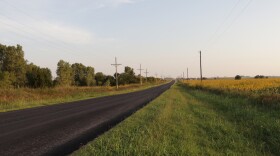-
Texas has the largest number of rural hospitals in the country. In the past decade, 14 of the state's rural hospitals have closed and another 82 are at risk of closure, according to a recent report from the Center for Healthcare Quality and Payment Reform. Despite funding challenges, some rural hospitals are continuing and even expanding services through community support.
-
Local leaders see data centers, which help power the world's shift to artificial intelligence, as a way to keep their towns open. Residents worry their way of life — and water — is at stake.
-
The Trump Administration asked states to find the lowest-cost option in the latest program to build broadband infrastructure in rural areas. That opens the door for more types of technology, which some worry could be less reliable in the long-term.
-
South Plains Community Action Association, Inc., or SPCAA, serves approximately 114 counties in Texas, with a focus on assisting in rural communities. It is one of many organizations whose programs are under threat in upcoming federal budget proposals.
-
The USDA's Rural Development agency has provided billions of dollars each year to small towns, farmers and businesses. Now staffing upheaval and budget cuts brought on by the Trump administration may be eating into the agency’s effectiveness.
-
An executive order calling for the reduction of a federal agency that awards grants to museums and libraries would affect Oklahoma’s urban and rural libraries differently.
-
More states in the Midwest and Great Plains are trying to support rural, independent grocery stores through tailored grant programs. Advocates say these businesses are vital for rural communities to thrive.
-
While research shows that the peer support model is effective at improving clients’ well-being, experts say that low pay makes it difficult for people to remain in positions or create livable careers.
-
Ad Astra School has opened around the corner from Elon Musk’s corporate compound in rural Central Texas. Nonprofit filings show secondary schools and a university are also planned.
-
A recent report from the U.S. Department of Agriculture found working-age rural residents die from natural causes at a higher rate than their urban counterparts. And that gap has widened over the years.

Play Live Radio
Next Up:
0:00
0:00
Available On Air Stations










